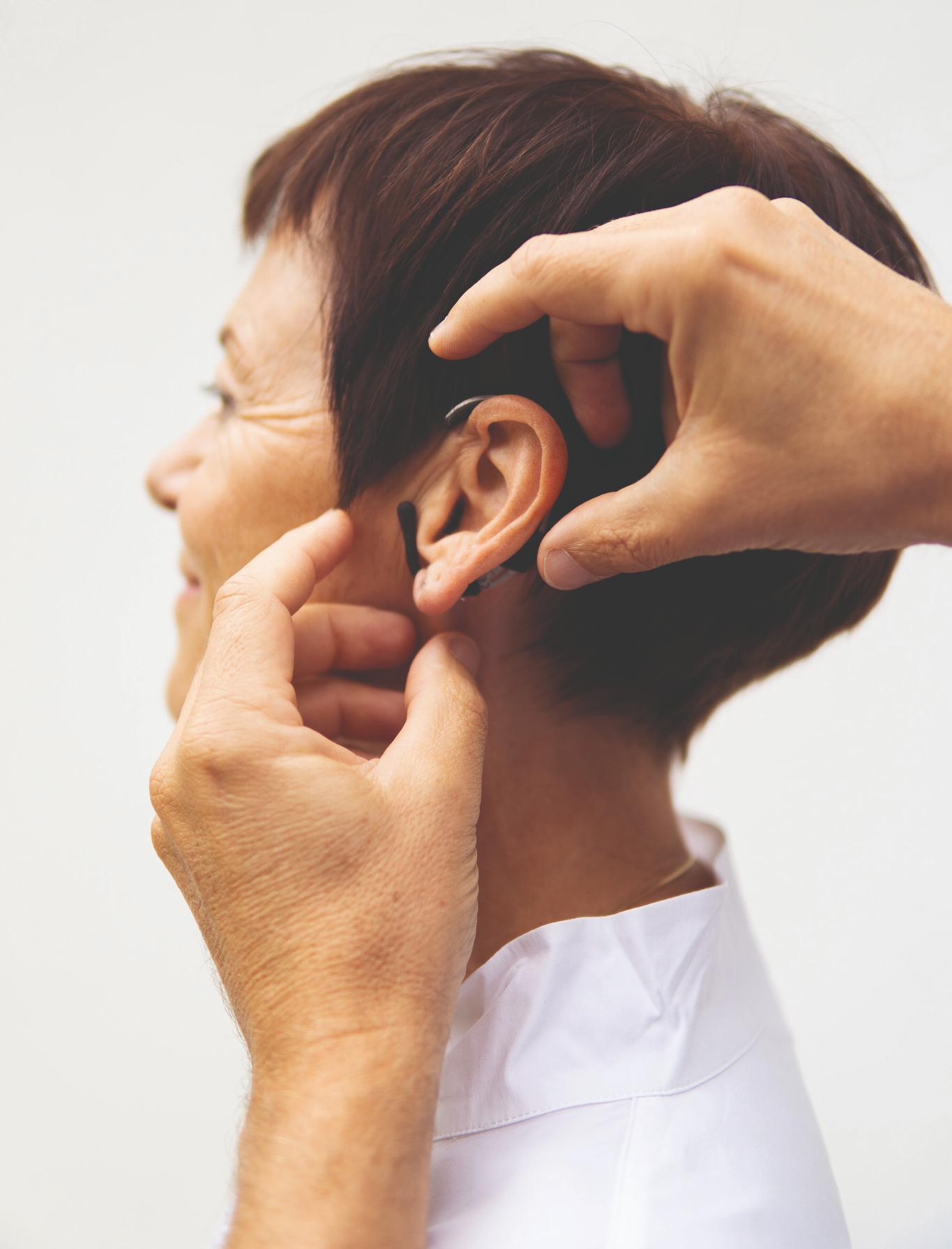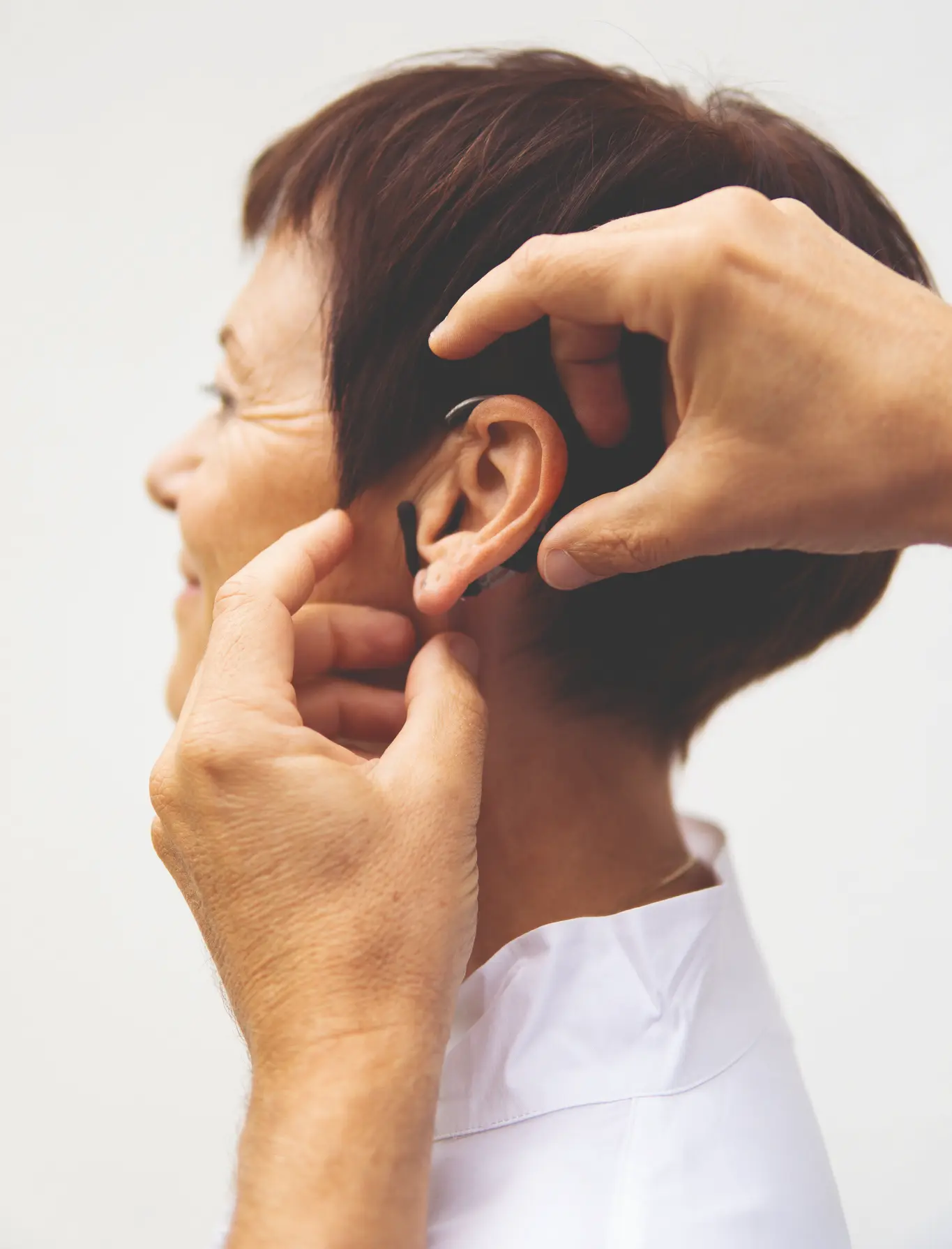Tinnitus and Stress
What is stress?
We’re all familiar with it – work-related conflicts, time pressure, relationship issues, high noise levels, or general overload can create an unpleasant sensation in the body. This feeling may manifest as tension, frustration, helplessness, as well as issues like sleep disturbances, stomach problems, or high blood pressure. All of these are symptoms of what we commonly refer to as stress.
This stress can be acute, in which the body prepares for a quick response, often triggered by the “fight-or-flight” reaction that originates from our primal instincts.
However, stress can also become chronic. With chronic stress, the autonomic nervous system remains continuously activated, and the body releases high levels of the stress hormone cortisol over an extended period. Elevated cortisol levels can lead to restlessness, tension, and impact both mental and physical well-being – and may also heighten one’s perception of tinnitus.
Does stress worsen tinnitus?
Physiological Effects:
Chronic stress can exacerbate tinnitus by affecting the auditory system. The release of stress hormones makes hearing more sensitive, which can influence the perception of ringing in the ears.
Behavioral Impact:
Some individuals with tinnitus consciously or unconsciously avoid certain activities for fear of worsening their tinnitus. This avoidance can increase stress levels and may even lead to social isolation.
Psychological Impact:
The constant perception of tinnitus may create additional stress as affected individuals may find it harder to relax and unwind. This can lead to a vicious cycle where stress and tinnitus continuously reinforce and intensify each other.
Emotional Strain:
Since tinnitus is difficult to control, let alone predict, sufferers may experience feelings of helplessness and frustration. This emotional strain can increase stress, potentially leading to depression and anxiety.

What can be done about stress?
It’s especially important to take care of both body and mind. A balanced diet, adequate sleep, and regular physical activity help reduce stress and, by extension, may lessen tinnitus symptoms.
Tipps gegen Stress

Physical Activity
Regelmäßige körperliche Aktivität, vor allem Ausdauersport/ Bewegung fördert die Durchblutung und hilft dabei Stress abzubauen. Dies wirkt sich wiederum positiv auf die Schlafqualität aus. Ein ausreichender und guter Schlaf ist notwendig, um den Körper und Geist ausreichend zu regenerieren.

Awareness, Avoidance & Balance
Ein aktives Achten auf den eigenen Körper führt dazu zu verstehen wo der Stress seinen Ursprung hat, um ihn anschließend durch Vermeiden und angemessenen Ausgleich zu reduzieren.

Relaxation Techniques
Weiters können auch Entspannungstechniken wie Meditation, Atemübungen und Yoga aktiv helfen den individuellen Stress zu managen und das allgemeine Wohlbefinden zu heben.

Time Management
Good time management can be extremely helpful during stressful periods. Planning and organizing upcoming activities effectively can reduce feelings of overwhelm and helplessness, which in turn supports stress reduction.
What is stress?
We’re all familiar with it – work-related conflicts, time pressure, relationship issues, high noise levels, or general overload can create an unpleasant sensation in the body. This feeling may manifest as tension, frustration, helplessness, as well as issues like sleep disturbances, stomach problems, or high blood pressure. All of these are symptoms of what we commonly refer to as stress.
This stress can manifest as acute stress, in which the body prepares for a quick response, triggered by the so-called "fight-or-flight" reaction of our primal instincts.
However, stress can also be chronic. In chronic stress, the autonomic nervous system remains continuously activated, and the body releases excessive amounts of the stress hormone cortisol over an extended period. This increased cortisol level can lead to restlessness, tension, as well as a deterioration of both mental and physical well-being – and can also heighten the perception of tinnitus.
Does stress worsen tinnitus?
Physiological Effects: Chronic stress can exacerbate tinnitus by affecting the auditory system. The release of stress hormones makes hearing more sensitive, which can influence the perception of ringing in the ears.
Behavioral Impact: Some individuals with tinnitus consciously or unconsciously avoid certain activities for fear of worsening their tinnitus. This avoidance can increase stress levels and may even lead to social isolation.
Psychological Impact: The constant perception of tinnitus may create additional stress as affected individuals may find it harder to relax and unwind. This can lead to a vicious cycle where stress and tinnitus continuously reinforce and intensify each other.
Emotional Strain: Since tinnitus is difficult to control, let alone predict, sufferers may experience feelings of helplessness and frustration. This emotional strain can increase stress, potentially leading to depression and anxiety.

What can be done about stress?
It’s especially important to take care of both body and mind. A balanced diet, adequate sleep, and regular physical activity help reduce stress and, by extension, may lessen tinnitus symptoms.
Tips for reducing stress

Physical Activity
Regular physical activity, particularly endurance sports, promotes circulation and helps reduce stress. This also positively affects sleep quality. Sufficient and restorative sleep is essential for the body and mind to regenerate.

Awareness, Avoidance & Balance
Actively paying attention to your body helps you identify the source of your stress, allowing you to avoid triggers or find appropriate counterbalances.

Relaxation Techniques
Relaxation methods like meditation, breathing exercises, and yoga can actively help manage personal stress and improve overall well-being.

Time Management
Good time management can be extremely helpful during stressful periods. Planning and organizing upcoming activities effectively can reduce feelings of overwhelm and helplessness, which in turn supports stress reduction.

